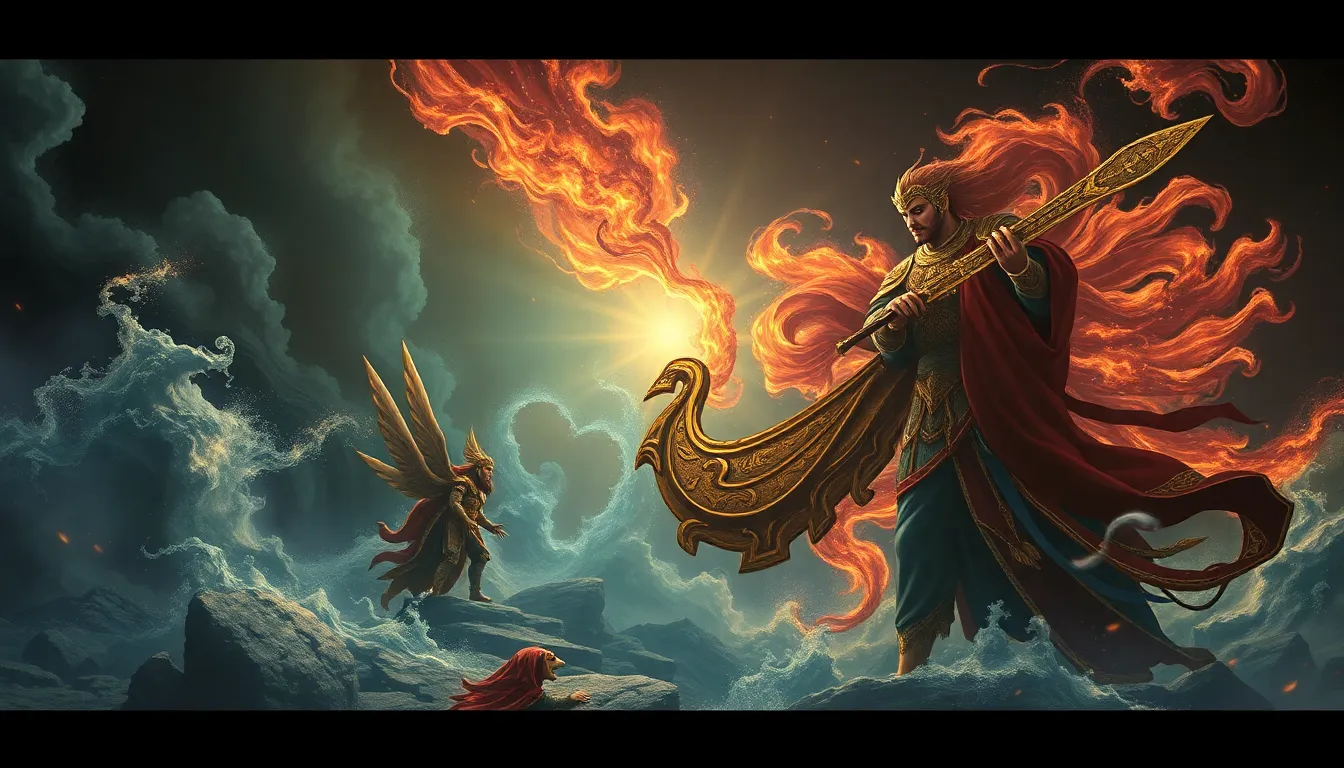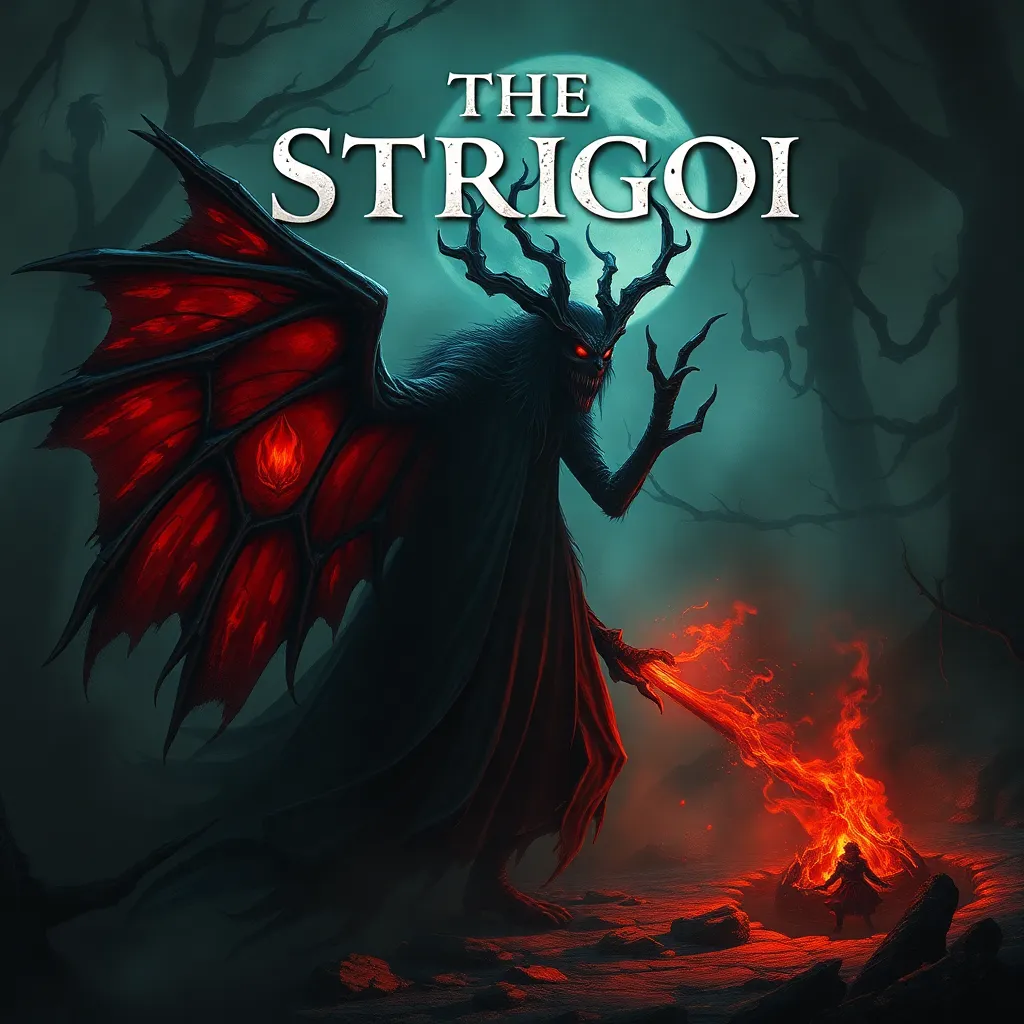Cultural Hero Myths: The Legends That Resonate with Us
I. Introduction to Cultural Hero Myths
Cultural hero myths are narratives that celebrate individuals who embody the values, ideals, and aspirations of a society. These myths often depict an extraordinary figure who undertakes significant challenges to achieve greatness or bring about change. They serve as a mirror reflecting societal beliefs and aspirations, reinforcing cultural identity and unity.
Myths hold a vital place in human society, acting as vessels for communication across generations. They provide moral guidance, impart lessons, and inspire individuals to strive for greatness. This article will explore the role of hero myths in shaping cultural identity, the common archetypes they present, their historical context, psychological significance, modern interpretations, and their impact on social movements.
II. The Role of Myths in Shaping Cultural Identity
Myths play a crucial role in shaping and reflecting cultural identity. They encapsulate the values and beliefs that define a community, offering a narrative framework through which individuals understand their place in the world.
A. How myths reflect cultural values and beliefs
Hero myths are often imbued with the moral and ethical standards of a culture. They highlight virtues such as courage, sacrifice, and resilience. For instance:
- In Greek mythology, heroes like Hercules embody strength and perseverance.
- In Hindu tradition, figures like Rama demonstrate duty and righteousness.
- In African folklore, characters like Anansi the Spider teach wisdom and cleverness.
B. The influence of hero myths on national identity
National identity is frequently shaped by the hero myths of a culture. These figures become symbols of national pride and unity, often celebrated in literature, art, and public monuments. For example, George Washington is revered in American history as a founding father and a symbol of liberty.
C. Case studies: Myths from different cultures
Examining myths from various cultures reveals the diverse ways in which societies honor their heroes:
- Japanese mythology features figures like Yamato Takeru, who symbolizes bravery and honor.
- In Native American cultures, heroes such as Coyote represent wisdom and adaptability.
- In Norse mythology, Thor exemplifies strength and protection.
III. Common Archetypes of Hero Myths
Cultural hero myths often feature common archetypes that resonate across different narratives.
A. The Reluctant Hero
The reluctant hero is typically an ordinary individual who is thrust into extraordinary circumstances. This archetype emphasizes the hero’s internal struggle before embracing their destiny. Examples include Frodo Baggins from “The Lord of the Rings” and Neo from “The Matrix.”
B. The Tragic Hero
Tragic heroes possess a fatal flaw that leads to their downfall, capturing the complexity of human experience. Figures like Oedipus and Hamlet embody this archetype, illustrating the interplay between fate and free will.
C. The Anti-Hero
Anti-heroes challenge traditional notions of heroism. They often possess morally ambiguous qualities, making them relatable yet flawed. Characters like Dexter Morgan from “Dexter” and Walter White from “Breaking Bad” exemplify this archetype.
D. The Hero’s Journey: Joseph Campbell’s Monomyth
Joseph Campbell’s concept of the monomyth outlines a universal narrative structure found in hero myths around the world. This journey typically includes stages such as:
- The Call to Adventure
- The Road of Trials
- The Return with the Elixir
IV. Historical Context of Hero Myths
The origins of hero myths can be traced back to ancient civilizations, where they were used to explain natural phenomena, social order, and cultural values.
A. Origins of hero myths in ancient civilizations
In ancient Greece, hero myths were linked to religious practices and civic identity. In Mesopotamia, the Epic of Gilgamesh served as a reflection of human struggles and achievements.
B. Evolution of hero myths through history
As societies evolved, so did their hero myths. The rise of literature and art during the Renaissance introduced new interpretations of heroism, while the modern era has seen a shift towards more diverse and complex representations of heroes.
C. The impact of historical events on myth-making
Major historical events, such as wars and revolutions, have influenced the creation of new hero myths, often aligning them with nationalistic sentiments or social movements.
V. The Psychological Significance of Hero Myths
Hero myths also hold psychological significance, serving as tools for understanding the human psyche.
A. Jungian perspectives on archetypes and the collective unconscious
According to Carl Jung, hero myths tap into the collective unconscious, utilizing archetypes that resonate universally. These archetypes help individuals navigate their own life challenges.
B. Myths as a means of coping with personal and societal challenges
In times of crisis, hero myths can provide hope and motivation, allowing individuals to draw strength from the stories of legendary figures.
C. The role of hero myths in personal development and self-identity
Engaging with hero myths can foster personal growth, encouraging individuals to aspire to higher ideals and develop a sense of purpose.
VI. Modern Interpretations and Adaptations of Hero Myths
In contemporary culture, hero myths are reimagined through various media, reflecting changing societal values.
A. Reimagining heroes in contemporary literature and film
Modern storytelling often subverts traditional hero archetypes, presenting complex characters that challenge the status quo.
B. The impact of technology and media on myth dissemination
With the rise of digital media, hero myths are more accessible than ever, allowing for widespread sharing and reinterpretation.
C. Examples of modern heroes and their mythological roots
Characters like Katniss Everdeen from “The Hunger Games” and Iron Man from the Marvel Cinematic Universe draw upon traditional hero motifs while addressing contemporary issues.
VII. Cultural Heroes and Their Impact on Social Movements
Cultural heroes often emerge from social movements, inspiring change and activism.
A. Historical figures as cultural heroes (e.g., Nelson Mandela, Rosa Parks)
Figures like Nelson Mandela and Rosa Parks exemplify how personal sacrifice and courage can catalyze social change, becoming symbols of hope for future generations.
B. How modern heroes inspire activism and change
Contemporary figures, such as Malala Yousafzai and Greta Thunberg, continue the legacy of cultural heroes, advocating for social justice and environmental issues.
C. The role of storytelling in social justice movements
Storytelling is a powerful tool in social movements, allowing marginalized voices to share their experiences and inspire collective action.
VIII. Global Perspectives on Hero Myths
Hero myths are not confined to a single culture; they offer a rich tapestry of narratives that can be compared and contrasted across the globe.
A. Comparative analysis of hero myths across cultures
By examining hero myths from various cultures, we can uncover universal themes and unique variations in how societies interpret heroism.
B. Cultural appropriation and the sharing of hero myths
The sharing of hero myths can lead to cultural appropriation, raising important questions about representation and ownership of narratives.
C. The significance of indigenous hero myths in preserving heritage
Indigenous hero myths play a crucial role in preserving cultural heritage and ensuring that traditional knowledge and values are passed down through generations.
IX. Critiques and Controversies Surrounding Hero Myths
While hero myths can be inspiring, they are not without their critiques and controversies.
A. The potential for harmful stereotypes
Some hero myths perpetuate harmful stereotypes, reinforcing societal norms that can marginalize certain groups.
B. Gender and racial representation in hero myths
Representation in hero myths has historically been skewed, often sidelining women and people of color in favor of more traditional narratives.
C. The phenomenon of “toxic heroism”
Toxic heroism refers to narratives that glorify harmful behaviors or ideologies, promoting an unhealthy notion of



